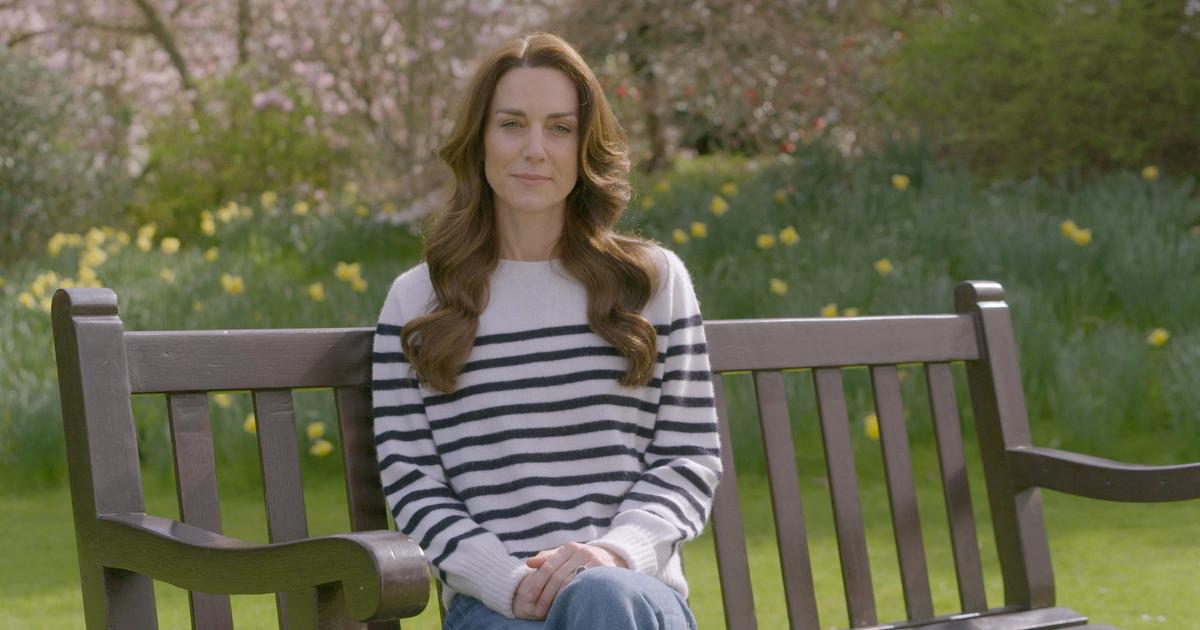Kate Middleton is already fighting against the disease.
With a pale face, the Princess of Wales announced that she had cancer in a video published on Friday March 22.
Heavily monitored by her medical team, the Princess of Wales declared having started a treatment of
“preventive chemotherapy”
to fight against the disease, even though she was only 42 years old.
“I am now in the first stages
,” she clarified, while reassuring about her condition:
“I am fine and I am getting better every day.”
Le Figaro
takes stock of this treatment.
Reduce the spread of cancer
Preventive chemotherapy, also called adjuvant chemotherapy, is quite common in different types of cancer: breast, lung, colon, ovarian, etc. It is generally offered after an operation.
The aim is to
“reduce the risk of cancer returning and spreading”
in the body via the spread of cancer cells in the blood, explains Lawrence Young, professor of oncology at Britain's University of Warwick.
Because even after successful surgery,
“microscopic cancer cells can remain lurking in the body without being able to be detected
,” said the expert, interviewed by the British Science Media Center (SMC).
For Andrew Beggs, a surgeon at the University of Birmingham,
"it's a bit like cleaning a floor with bleach when you've spilled something on it
. "
Also read “The shock of Kate’s cancer”: the British press in turmoil after Kate Middleton’s revelations
Three to six months of treatment
Chemotherapy is intended to kill cancer cells, without distinguishing them from healthy, useful ones, such as white blood cells.
Which leads to side effects.
These effects vary depending on the nature of the cancer and the profile of the people it affects, but they generally lead to nausea, loss of appetite, diarrhea and increased risk of infection (due to a reduction in white blood cells).
Some rarer effects can cause sepsis and damage to vital organs.
The duration of treatment varies, again, depending on the nature of the tumors.
But a traditional chemotherapy regimen is often administered in four or six sessions, says Bob Phillips, professor of pediatric oncology at the University of York.
A cycle can last 21 days and
“consists of a day or a few days of chemo, then a recovery time for the body
,” explains the expert.
Preventive chemotherapy regimens tend to last three to six months.
And it can take weeks or even months to recover from treatment.
Younger and younger
Does it make a difference that Kate has cancer at only 42?
Difficult to answer, but
“cancers appearing at a young age are by no means rare
,” emphasizes surgeon Andrew Beggs.
“I run a clinic for early-onset cancers in adults and we are seeing more and more people in their forties with cancer
,” he says.
Shivan Sivakumar, an oncology expert at the University of Birmingham, suggests that
“there is currently an epidemic”
of people under 50 suffering from cancer.
“We don't know the cause, but we are seeing more patients with abdominal cancers
,” he added.
Research published last week in the journal BMJ found that cancer cases among Britons aged 35 to 69 had increased over the past quarter of a century.
Read also Cancers of Kate Middleton, Charles III and Sarah Ferguson: 2024, a nightmare for the Windsors
This work also found that the number of deaths from cancer had decreased significantly.
Younger people are also more likely to survive cancer.
“The incidental discovery of cancer during surgery for other pathologies is often associated with early detection of the tumor, and the chemotherapy that follows is much more effective
,” argues Professor Young.
In France, in 2023, 131 women out of 100,000 will be diagnosed with cancer at the age of 40, compared to 439 women out of 100,000 at the age of 70, indicates Public Health France.
The appearance of cancer in a woman of Kate's age is therefore rare, but not unprecedented.

